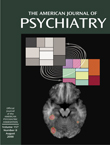Hypnotic Visual Illusion Alters Color Processing in the Brain
Abstract
OBJECTIVE: This study was designed to determine whether hypnosis can modulate color perception. Such evidence would provide insight into the nature of hypnosis and its underlying mechanisms. METHOD: Eight highly hypnotizable subjects were asked to see a color pattern in color, a similar gray-scale pattern in color, the color pattern as gray scale, and the gray-scale pattern as gray scale during positron emission tomography scanning by means of [15O]CO2. The classic color area in the fusiform or lingual region of the brain was first identified by analyzing the results when subjects were asked to perceive color as color versus when they were asked to perceive gray scale as gray scale. RESULTS: When subjects were hypnotized, color areas of the left and right hemispheres were activated when they were asked to perceive color, whether they were actually shown the color or the gray-scale stimulus. These brain regions had decreased activation when subjects were told to see gray scale, whether they were actually shown the color or gray-scale stimuli. These results were obtained only during hypnosis in the left hemisphere, whereas blood flow changes reflected instructions to perceive color versus gray scale in the right hemisphere, whether or not subjects had been hypnotized. CONCLUSIONS: Among highly hypnotizable subjects, observed changes in subjective experience achieved during hypnosis were reflected by changes in brain function similar to those that occur in perception. These findings support the claim that hypnosis is a psychological state with distinct neural correlates and is not just the result of adopting a role.



